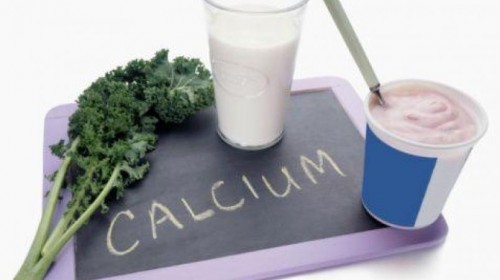 Recommended intake of calcium for both men and women
Recommended intake of calcium for both men and women
1,000 MG/Day (Age: 19-50)
Calcium Allies: Vitamin K2 + Magnesium + Vitamin D
Vitamin K2 helps the body get calcium in the right place. This maintains the body's bone mass an promotes elasticity of blood vessels.
Magnesium helps the body maintain normal levels of calcium, as well as potassium, phosporous, adrenaline and insulin.
Vitamin D promotes the absorption of calcium and phosporous, and supports the production of several proteins involved in calcium absorption and storage.
From where do you get your Calcium intake?
Supplement :750 MG
Milk: 300 MG
Yogurt: 415 MG
Salmon: 181 MG
Calcium is a chemical element with symbol Ca and atomic number 20. Calcium is a soft gray alkaline earth metal, fifth-most-abundant element by mass in the Earth's crust. The ion Ca2+ is also the fifth-most-abundant dissolved ion in seawater by both molarity and mass, after sodium, chloride, magnesium, and sulfate. Free calcium metal is too reactive to occur in nature. Calcium is produced in supernova nucleosynthesis.
Calcium is essential for living organisms, in particular in cell physiology, where movement of the calcium ion into and out of the cytoplasm functions as a signal for many cellular processes. As a major material used in mineralization of bone, teeth and shells, calcium is the most abundant metal by mass in many animals.











